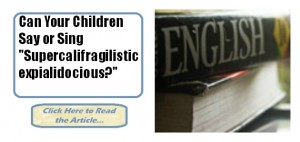 If you have been reading the articles and considering the ideas found through this web site, this is a question you are likely to ask. When you recognize that we are in a cultural crisis, your first instinct is undoubtedly to search for a solution.
If you have been reading the articles and considering the ideas found through this web site, this is a question you are likely to ask. When you recognize that we are in a cultural crisis, your first instinct is undoubtedly to search for a solution.
But the usual places you might expect to be part of the solution, schools, government, and the entertainment industry, are part of the problem.Each of these contributes to the causes of our crisis.
Schools are too often busy trying keep up with fads and fashions. Your children and grandchildren should be acquiring the tools to learn about the best of our culture in school, but more often than not, they don’t. Even when teachers try to provide them with such tools, they are often stopped by administrators or overwhelmed by the pop culture which is everywhere.
Government usually interferes in the crisis; its two great contributions to the problem are politics and bureaucracy. Neither politicians nor bureaucrats are helpful. They are either pursuing their own agenda or making everything a hundred times more complex than it need be.
The entertainment industry is the prime mover in the cultural crisis. It is concerned only with making money and is perfectly willing to jettison standards and values to make an extra dollar.
All of this may leave you feeling discouraged and hopeless. But fear not!
The solution is easier than you think.
All you have to do is look in the mirror.
That’s right, you can represent the solution for you and your family.
Self-education is one of the pillars of Cultural Conservation. It is also a way for you to help your family. Many of the most accomplished ( and yes, best educated) men and women in history have been self-taught. Nor do you have to pursue self-education alone. Today there are countless resources available, many on line, that can help you. This web site will help you form a personal plan of action that relates to the interests and needs of you and your family.
A personal plan of action is the key.
Are you skeptical? It’s perfectly natural. One reason for skepticism is that when the subject of self-education and learning for a life are mentioned, you may immediately think of school. While most of us have had favorite teachers, everyone has taken instruction from teachers who were anything but favorites.
Teachers can be uninspired, boring, or just inept at explaining things. Certain teachers are used to teaching just one way without recognizing the individual needs or talents of their students. I was privileged during my student days to study with several world renowned musicians who were widely recognized as master teachers. But I’ve also had my share of bad teachers, boring classes, and instructors who made me the think the song “School Days” should have been called “School Daze.”
But my “student days” aren’t over; they will last forever, because even as I’m teaching, I never stop learning. I prefer to follow the lead of the great jazz pianist Oscar Peterson who told me that if he played the piano for another fifty years, he was still learning. Most musicians would like to have a fraction of Peterson’s skill or artistry, but he regarded his life as a continued opportunity to learn and improve. Your student days aren’t over either.
Regardless of where you are in your life, you and all the members of your family will continue learning throughout your lives.
But what your children and grandchildren learn is entirely up to them…………….and in a way, up to you!
Learning does not require that you attend classes in a classroom or register at a formal school.
These activities may help, but they are anything but essential. Learning does require time and commitment, but it also requires enthusiasm. In recent years, homeschooling has become a solution for many parents who are unhappy with public schools and unwilling or unable to send their children to a private school. Yet homeschoolers have repeatedly scored well on academic tests, developed outstanding musical skills, and won contests in everything from spelling to science.
If your children learn about men and women who were true achievers, they will be often be studying about the lives of those who succeeded in great accomplishments without formal education. George Washington and Abraham Lincoln, for instance, didn’t attend college. Lack of a college diploma didn’t prevent Thomas Edison’s work on the light bulb, Henry Ford’s development of the automobile, Milton Hershey’s creation of the Hershey Bar, or Walt Disney’s establishment of his Magic Kingdom.
Roy Harris was born in a log cabin on Lincoln’s birthday( in Lincoln County, Oklahoma); he never graduated from college but wrote thirteen symphonies and became one of America’s most prominent composers. Paul Creston was born to a poor, but devoted family of Italian immigrants. He worked to help support his family and was self-taught in musical composition. But that didn’t prevent him from becoming not only a renowned composer, but a teacher, author, and linguist.
Many of the most famous authors in history were self-educated, including Louisa May Alcott, Jane Austen, Elizabeth Barrett Browning, Frederick Douglass, Robert Frost, and Carl Sandburg.
So remember, self-education isn’t about school.
It’s about inquiry and discovery.
You may pursue knowledge about a subject with which you are unfamiliar or one that has never captured your imagination before. You can discover how easy and how much fun it is to begin exploring new worlds in our culture. What will you be doing? Encountering the delights of language, listening to all kinds of music, new and old, and finding out about the men and women who are our true achievers, past and present.
If you learn a new word a day, determine your own goals, develop a list of books, music, and art to encounter, you’ll be on your way.
One of the goals of Cultural Conservation is to help you do these things and pass them on your family.
A family that learns together will grow together.
The guidelines, outlines, and road maps are here.
You won’t find cookie-cutters here, because if you want to bake cookies, go into the kitchen. Every person and every family is individual. But if you want to develop your own personal plan of action, you can begin right here. This brings us back to the question I asked you in the beginning. What can you do to help your family in the Age of Trash Talk and MTV? A lot!
But if you want to develop your own personal plan of action, you can begin right here.

